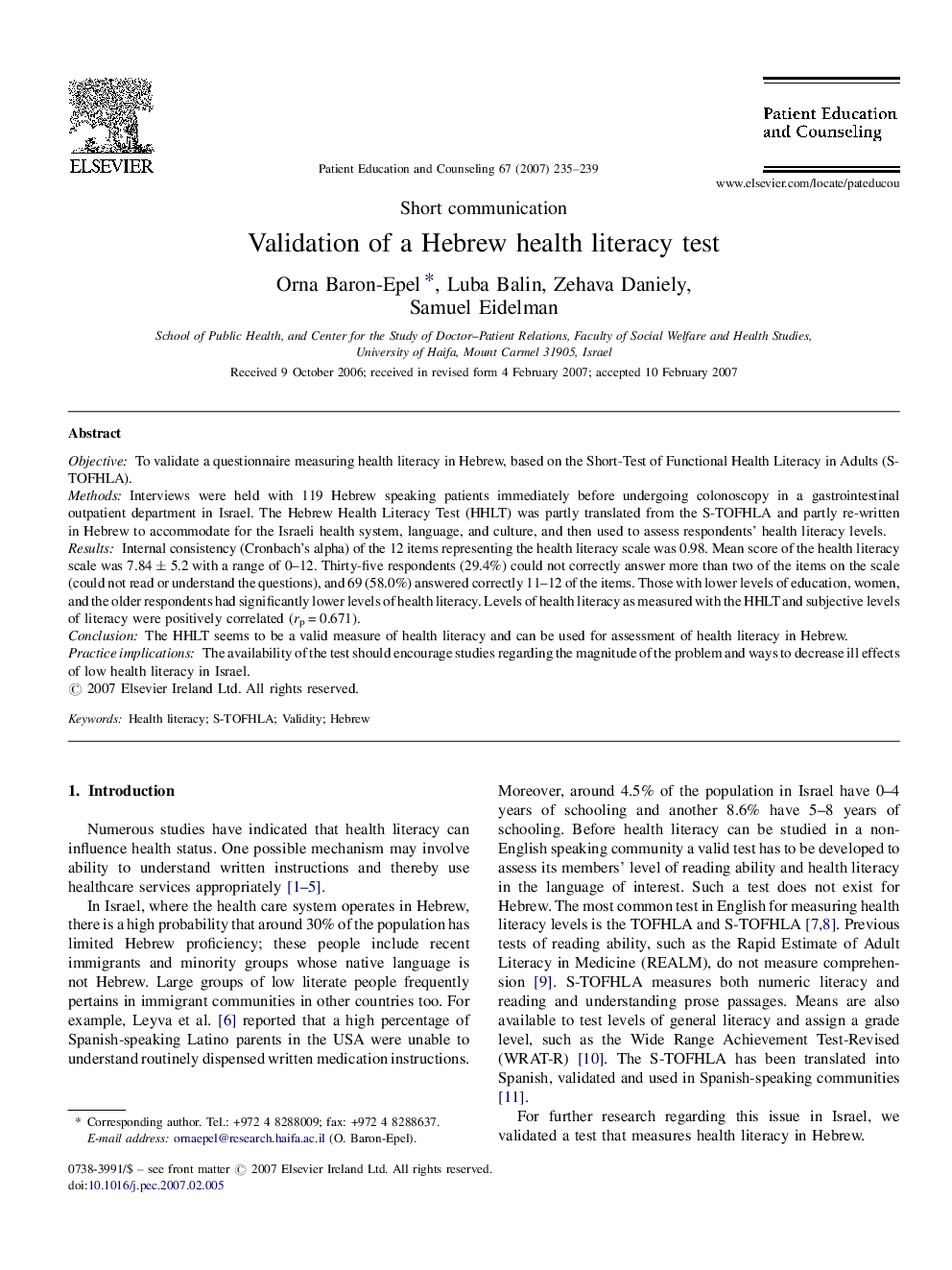| Article ID | Journal | Published Year | Pages | File Type |
|---|---|---|---|---|
| 3816049 | Patient Education and Counseling | 2007 | 5 Pages |
ObjectiveTo validate a questionnaire measuring health literacy in Hebrew, based on the Short-Test of Functional Health Literacy in Adults (S-TOFHLA).MethodsInterviews were held with 119 Hebrew speaking patients immediately before undergoing colonoscopy in a gastrointestinal outpatient department in Israel. The Hebrew Health Literacy Test (HHLT) was partly translated from the S-TOFHLA and partly re-written in Hebrew to accommodate for the Israeli health system, language, and culture, and then used to assess respondents’ health literacy levels.ResultsInternal consistency (Cronbach's alpha) of the 12 items representing the health literacy scale was 0.98. Mean score of the health literacy scale was 7.84 ± 5.2 with a range of 0–12. Thirty-five respondents (29.4%) could not correctly answer more than two of the items on the scale (could not read or understand the questions), and 69 (58.0%) answered correctly 11–12 of the items. Those with lower levels of education, women, and the older respondents had significantly lower levels of health literacy. Levels of health literacy as measured with the HHLT and subjective levels of literacy were positively correlated (rp = 0.671).ConclusionThe HHLT seems to be a valid measure of health literacy and can be used for assessment of health literacy in Hebrew.Practice implicationsThe availability of the test should encourage studies regarding the magnitude of the problem and ways to decrease ill effects of low health literacy in Israel.
